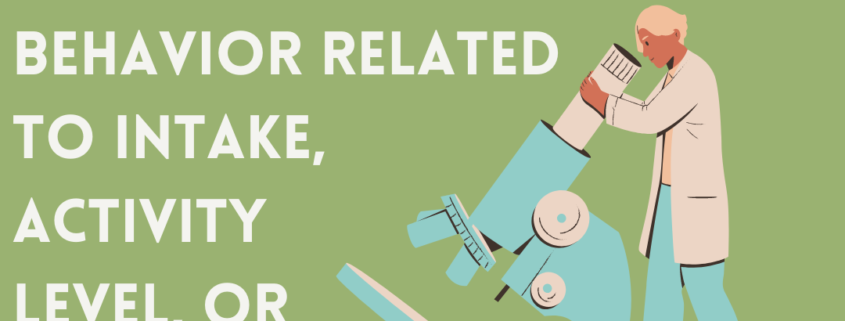Cancer Prevention: Behavior Related to Intake, Activity Level, or Obesity
Interested preventing cancer? Confused by all the misinformation, disinformation or scientific uncertainties about cancer? Looking for a specific nutritional supplement to add or targeted food item to avoid?
Nearly one-half of all cancer cases are attributable to behaviors such as tobacco use, poor diet, alcohol use, sedentary behavior and excessive ultraviolet exposure.
As dietitians at Banister Nutrition, we are particularly interested in those behaviors that relate to intake, activity level, or obesity.
Food is necessary to run your body. NO food can prevent cancer or eliminate your risk. Emerging cancer prevention research is focusing on overall healthy diet patterns in place of searching for single food items to eliminate or add to your diet. In other words, what you eat in a typical week is more important than individual foods. A healthy balanced diet has NO food rules, nor is it a strict meal plan. Some guidelines:
- Fill half your plate with fruits and vegetables.
- Switch to whole grains to increase fiber such as brown rice, whole wheat pasta, bread, oats. Look for the word whole when searching for high fiber grains.
- Add healthy sources of protein like fresh fish, chicken, lentils.
- Enjoy 1or 2 meat-free meals each week.
- Incorporate low fat milk and yogurt as good sources of protein, calcium and other vitamins.
- Limit to “occasional”: lean red meat in 3-4 oz portions, processed meats including bacon, sausage, nuggets, and fast foods and sweets.
Alcohol should not be overlooked. The World Health Organization labeled alcohol as a carcinogen in 1988. We love the idea that wine could be beneficial for our heart, but we may overlook the fact alcohol is also a carcinogen. It also can be a significant contributor of unnecessary calories. Whatever your current alcohol intake, decrease it slightly and you will be doing yourself a cancer-prevention favor.
Energy imbalance due to sedentary behavior and/or excessive caloric intake is a key (but preventable) cause of cancer. You may know that a sedentary lifestyle is not good for your heart, but did you know it may be a contributing factor to cancer? Exercise reduces your risk of cancer by:
- Helping you maintain a healthy weight
- Helping regulate hormones that can increase cancer risk
- Supporting healthy digestion and helping reduce toxins in your body
- Keeping the immune system healthy.
To increase your activity level:
- Move 1-2 minutes every hour you are awake. Extended periods of sitting increase cancer risk.
- Schedule exercise – where, when and how.
- Aim for 150 minutes of moderate exercise or 75 minutes of vigorous exercise weekly. Exercise can be done in short intervals of 10-15 minutes.
- Strength training should be incorporated at least 2x/week.
Obesity is considered a risk factor for developing cancer. Research indicates higher amounts of body fat are associated with 13 different types of cancer including breast, liver, kidney, pancreatic, thyroid, ovarian, gallbladder. If you are struggling with excess weight, seek a registered/licensed dietitian to guide and support you to achieve a healthy weight and decrease your cancer risk.
Remember that prevention has the greatest potential to reduce the likeliness of cancer in your life.



